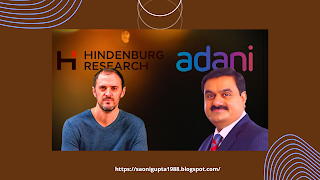Humans Versus Artificial Intelligence: Navigating the Future
Introduction
In the vast landscape of technological advancement, one of the most profound and controversial debates is the potential conflict between humans and artificial intelligence (AI). As AI continues to evolve and become increasingly sophisticated, questions arise about its impact on human society, the economy, and even our own existence. Will AI surpass human intelligence and render us obsolete? Or can we forge a harmonious coexistence, leveraging the strengths of both humans and AI? In this blog, I will delve into the complex dynamics of humans versus AI, exploring the possibilities, challenges, and potential outcomes in the future.
The Rise of Artificial Intelligence
To understand the implications of humans versus AI in the future, it is crucial to trace the trajectory of AI's development. Over the centuries, AI has evolved from simple algorithms to advanced machine learning systems capable of emulating human cognitive processes.
With exponential growth in computational power, data availability, and algorithmic advancements, AI has infiltrated various sectors, transforming industries and augmenting human capabilities. From healthcare and transportation to finance and entertainment, AI has become an integral part of our lives.
AI's Strengths and Limitations
Despite AI's rapid progress, it is essential to recognize its inherent strengths and limitations.
AI's Strengths:
Speed: AI can process and analyze vast amounts of data quickly.
Accuracy: AI systems can perform tasks with a high level of precision and minimize errors.
Scalability: AI can scale up to handle large volumes of work without a decline in performance.
Pattern Recognition: AI excels at identifying patterns and trends in complex data sets.
Automation: AI can automate repetitive tasks, leading to increased efficiency and productivity.
Decision Making: AI algorithms can make data-driven decisions based on predefined rules and patterns.
Personalization: AI can customize experiences and recommendations based on individual preferences and behaviors.
AI's Limitations:
Lack of Common Sense: AI may struggle with understanding context, making common-sense judgments, or reasoning outside of its programmed parameters.
Data Dependency: AI heavily relies on quality data for training and may produce biased or inaccurate results if the data is flawed or insufficient.
Lack of Creativity: AI often struggles to exhibit creativity, imagination, and the ability to generate original ideas or solutions.
Ethical Concerns: AI raises ethical questions related to privacy, bias, job displacement, and the potential for misuse of advanced technologies.
Lack of Emotional Intelligence: AI lacks emotional understanding, empathy, and the ability to interpret and respond to human emotions effectively.
Contextual Understanding: AI may have difficulty understanding the nuances of human language, humor, and cultural context.
Limited Adaptability: AI systems are typically designed for specific tasks and may struggle to adapt to new or unforeseen situations without human intervention.
The Economic Landscape
The advent of AI has sparked fears about massive job displacement and economic inequality. While some jobs may be automated, AI also creates new opportunities and redefines traditional roles. In the future, with the proliferation of AI, the labor market may experience a profound transformation.
Humans may need to adapt by acquiring new skills and transitioning to roles that leverage their cognitive, emotional, and creative capacities. Governments and societies would play a critical role in ensuring the equitable distribution of resources and facilitating the transition to an AI-driven economy.
The Human-AI Partnership
Rather than framing the discourse as humans versus AI, an alternative perspective is one of collaboration and partnership. In this scenario, humans and AI work synergistically, each complementing the other's strengths. AI can enhance human decision-making, improve efficiency, and aid in complex problem-solving.
Human oversight, on the other hand, ensures ethical considerations, guards against biases, and maintains accountability. By fostering a symbiotic relationship, humans can leverage AI as a powerful tool to address global challenges such as climate change, disease eradication, and space exploration.
It is important to recognize that the evolution of AI is not a zero-sum game. The advancement of AI does not necessarily imply the downfall of humanity. Instead, it offers an opportunity to redefine our roles and explore new frontiers.
As AI takes on routine tasks, humans can focus on higher-order thinking, creativity, innovation, and empathy—qualities that make us uniquely human. By embracing continuous learning and adapting to the changing landscape, we can cultivate the skills and expertise that will be in demand in the AI-driven era.
Education and lifelong learning will play a crucial role in this transition. As AI automates certain aspects of work, the focus of education should shift towards nurturing critical thinking, emotional intelligence, problem-solving, and adaptability.
By fostering a culture of lifelong learning, individuals can stay ahead of the curve and remain relevant in an AI-dominated world. Furthermore, fostering collaboration between humans and AI requires a multidisciplinary approach. Experts from various fields, including computer science, philosophy, psychology, and sociology, must work together to address the ethical, social, and legal implications of AI.
Developing robust frameworks for AI governance, ensuring transparency, and addressing issues such as bias, privacy, and security will be essential to building trust between humans and AI systems. In addition, it is important to recognize the limitations of AI and define clear boundaries for its deployment.
While AI can assist in decision-making processes, ultimate control and responsibility should lie with humans. AI systems should be designed with ethical considerations in mind, incorporating principles such as fairness, accountability, and transparency. Human oversight should be implemented to prevent AI systems from making decisions that could have detrimental consequences for individuals or society as a whole.
The journey towards a harmonious coexistence between humans and AI will undoubtedly present challenges. It will require a collective effort from governments, organizations, and individuals to navigate the complex terrain of AI ethics, regulation, and societal implications. Collaboration, open dialogue, and continuous reassessment of policies and practices will be vital in shaping a future that prioritizes human values while embracing the transformative potential of AI.
Ethical Considerations
Ethical issues grow more important as AI becomes more embedded into our daily lives. Questions of privacy, algorithmic biases, transparency, and accountability must be addressed to ensure that AI serves the collective good.
Ethical frameworks and regulatory measures should be in place to govern AI development, deployment, and decision-making. Balancing the potential benefits of AI with concerns about security, autonomy, and human dignity will be crucial in shaping a future where humans and AI coexist harmoniously.
Conclusion
The future relationship between humans and artificial intelligence is a complex and multifaceted topic. While fears of AI surpassing human intelligence and replacing humanity persist, a more optimistic outlook emphasizes collaboration and partnership. By embracing the unique strengths of both humans and AI, we can create a future where AI augments human capabilities, leading to unprecedented advancements in science, technology, and society. However, this future relies on responsible development, ethical considerations, and the recognition that humanity's defining qualities—creativity, empathy, and intuition—remain invaluable even in the face of technological progress. By embracing the possibilities and addressing the challenges, we can forge a path towards a future where humans and AI thrive together.
.png)
.png)





Very impressive 👍
ReplyDeleteThank you so much !!! 😊
Delete